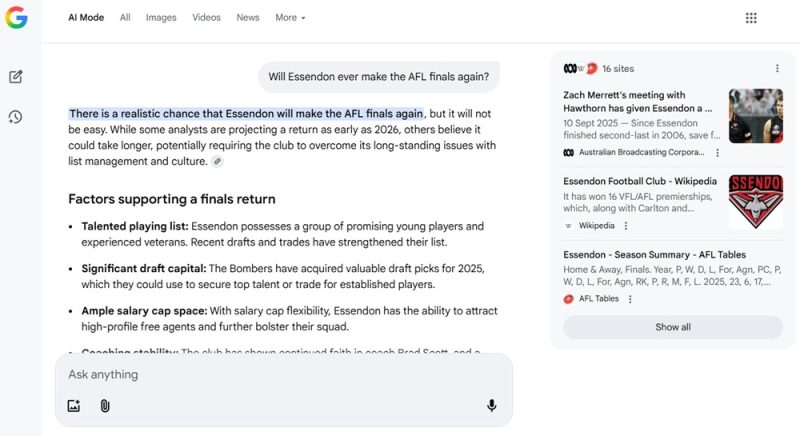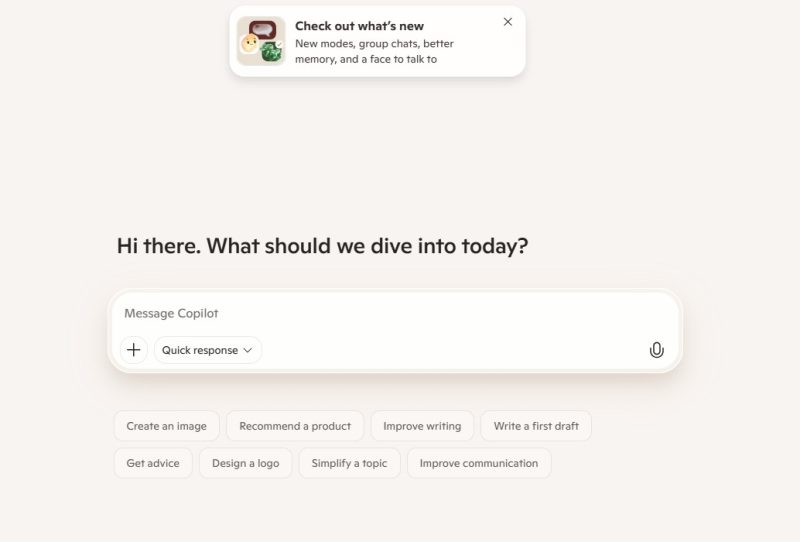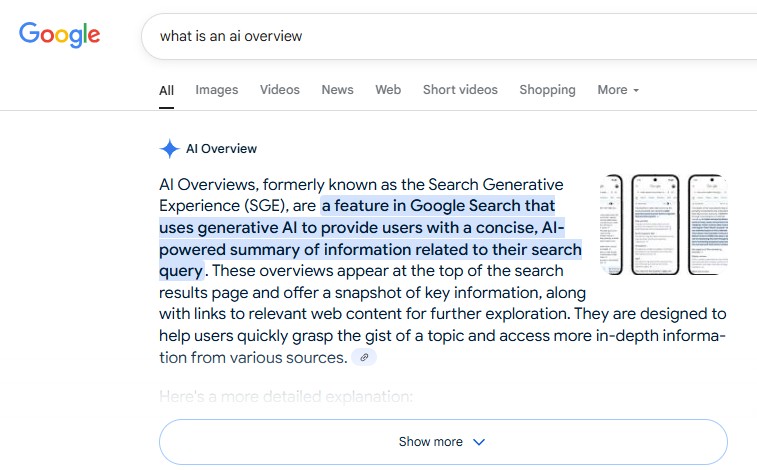
The AI Search Wars: Who’s Actually Winning the Battle for Users?
You’ve probably noticed things are changing with how you find information online. It feels like everywhere you look, AI is being talked about, especially when it comes to searching. This article is going to look at what’s happening in this new AI search space, who’s making the biggest waves, and what it all means for you as a user. We’ll break down what winning looks like in this fast-moving world and where things might be headed next.
Key Takeaways
- The way we search the internet is changing fast because of AI, moving beyond simple keyword matching to more conversational and helpful interactions.
- Google and Microsoft are the main contenders, with Google trying to adapt its long-standing search engine and Microsoft making big plays with Bing AI and its partnership with OpenAI.
- ChatGPT currently has 82.7% market share in terms of visits, and around 400 million monthly users.
- Winning in AI search isn’t just about having the most advanced tech; it’s about getting people to actually use it, keeping them engaged, and finding ways to make money from it.
- As AI search becomes more common, it’s changing how you find and interact with information, potentially making searches quicker and more direct.
- The future of search is likely to be even more integrated with AI, possibly leading to new ways of discovering information and interacting with the digital world.
- This will see an increase in demand for services beyond SEO such as AEO (answer engine optimisation).
The Rise of AI in Search: A Paradigm Shift
It feels like just yesterday we were all getting used to typing keywords into a search bar and sifting through blue links. Now, though, things are changing, and fast. We’re witnessing a genuine shift in how we find information online, driven by the rapid advancement of artificial intelligence. This isn’t just a minor update; it’s a fundamental change to the search experience, moving from a simple retrieval system to something far more interactive and intelligent.
Think about it: instead of just getting a list of websites, you’re starting to get direct answers, summaries, and even creative content generated on the fly. This evolution means the way we search, and what we expect from search engines, is being completely reshaped. The core of how we access and process information is being redefined.

This transformation is happening across the board. Search engines are no longer just about matching queries to documents. They’re becoming sophisticated assistants, capable of understanding context, nuance, and even intent in ways that were science fiction a few years ago. This new era of search is built on powerful AI models that can process vast amounts of data and present it in a coherent, user-friendly format.
Here’s a look at how this shift is impacting the search landscape:
- From Keywords to Conversations: Search is moving beyond simple keyword matching to more natural, conversational interactions. You can ask follow-up questions and get contextually relevant answers.
- Direct Answers and Summaries: AI can now synthesise information from multiple sources to provide direct answers and concise summaries, saving you time and effort.
- Content Generation: Search engines are starting to generate content, from drafting emails to writing code snippets, acting as a creative partner.
- Personalised Experiences: AI allows for a more tailored search experience, understanding your preferences and past behaviour to deliver more relevant results.
This isn’t just about making search faster; it’s about making it smarter and more intuitive. The goal is to anticipate your needs and provide information in the most helpful way possible, often before you even explicitly ask.
This paradigm shift presents both incredible opportunities and significant challenges for everyone involved, from users to the companies building these new search experiences. It’s a dynamic and exciting time, and understanding this foundational change is key to grasping the current ‘AI Search Wars’.
The Major Players in the AI Search Arena
Right now, the search engine landscape is really heating up, and you can see a few big names making some serious moves. It’s not just about who has the best algorithm anymore; it’s about who can integrate artificial intelligence in a way that genuinely helps people find what they need, faster and smarter.
Google’s AI-Powered Evolution
For years, Google has been the undisputed king of search. They’ve been quietly building AI into their systems for ages, refining how they understand your queries and present results. Think about how much better search has gotten even in the last five years – that’s a lot of AI at work behind the scenes. Now, with the AI search wars in full swing, they’re pushing even harder. They’re not just tweaking; they’re fundamentally rethinking how search works, aiming to give you direct answers and summaries, not just links. Their challenge is balancing this rapid innovation with the need to protect their massive advertising revenue, which relies on the traditional link-based model. It’s a delicate act, for sure.

Microsoft’s Bold Moves with Bing AI
Microsoft has come out swinging, and you’ve probably heard a lot about Bing AI, powered by OpenAI’s impressive models. They’ve integrated this technology directly into their search engine and across their product suite with Copilot. This means you can get AI-generated summaries, draft emails, or even analyse data in Excel, all within the Microsoft ecosystem. They’re betting big on AI being the future, and their partnership with OpenAI gives them a significant edge. It’s a smart play, especially considering how many people already use Microsoft products daily. They’re aiming to make AI assistance a standard part of your digital life.

Emerging Challengers and Niche Players
While Google and Microsoft are the giants, don’t count out the others. Companies like Perplexity AI are trying different approaches, focusing on providing direct answers and citations, essentially acting as an AI research assistant. They’re even looking at ways to integrate with browsers to get a better handle on user data and behaviour, which is a whole other battleground. These smaller players are often more agile and can experiment with new interfaces and user experiences that the bigger companies might hesitate to adopt due to their existing business models. It’s these kinds of innovations that keep the big players on their toes and push the entire field forward.
What Does ‘Winning’ Mean in the AI Search Wars?
In the rapidly evolving landscape of AI-powered search, defining ‘winning’ isn’t as straightforward as simply looking at market share. It’s a multifaceted concept, requiring a keen eye on user behaviour, technological advancement, and the often-elusive goal of sustainable business success. For you, as a user and observer, understanding these metrics provides clarity on who is truly making an impact.
User Adoption and Engagement Metrics
At its core, search is about serving users. Therefore, the most immediate indicator of success is how many people are actually using and sticking with an AI search product. This isn’t just about initial downloads or sign-ups; it’s about sustained engagement. Are users returning day after day? Are they spending more time interacting with the search results or the AI features? High engagement suggests that the AI is genuinely making the search experience better, more efficient, or more insightful.
Consider these points:
- Daily Active Users (DAU) / Monthly Active Users (MAU): A growing DAU/MAU ratio indicates strong user retention.
- Session Duration and Frequency: Longer, more frequent search sessions point to users finding significant value.
- Feature Usage: Which AI-powered features are users interacting with the most? This reveals what aspects of AI search are most compelling.
- User Feedback and Sentiment: Direct feedback, reviews, and social media sentiment offer qualitative insights into user satisfaction.
While impressive technological leaps are exciting, if users aren’t finding them useful enough to integrate into their daily routines, the long-term viability is questionable. The true test is whether the AI makes your information-seeking process demonstrably easier or more effective.
Technological Innovation and Feature Sets
Beyond user numbers, the pace and direction of technological innovation are critical. Who is pushing the boundaries of what AI search can do? This involves not just the accuracy and relevance of search results, but also the introduction of novel features that redefine the search experience. Think about AI that can summarise complex topics, generate creative content, or even anticipate your needs before you explicitly ask.
Key areas of innovation include:
- Natural Language Understanding (NLU): How well can the AI understand nuanced queries and conversational language?
- Generative Capabilities: The ability to create new content, summarise information, or provide detailed explanations.
- Personalisation: How effectively can the AI tailor results and interactions to individual user preferences and history?
- Multimodal Search: The integration of text, image, and voice search capabilities.
Monetization and Business Model Success
Ultimately, for any company to sustain its AI search efforts, it needs a viable business model. ‘Winning’ also means demonstrating the ability to generate revenue and profit from these advancements. This can come through various avenues, such as advertising, premium subscriptions, or integrating AI search into broader product ecosystems.
Here’s a look at common approaches:
- Advertising Integration: How are ads presented in an AI-driven search environment without disrupting the user experience?
- Subscription Services: Offering advanced AI features or ad-free experiences for a fee.
- Ecosystem Play: Embedding AI search capabilities into other products and services to drive value across the board.
- Data Monetization (with privacy considerations): Using aggregated, anonymised data to improve services and potentially create new revenue streams.
The companies that successfully balance user value with a robust business strategy are the ones most likely to achieve long-term dominance in the AI search arena. It’s a complex interplay, and the definition of ‘winning’ will continue to evolve as the technology matures and user expectations shift.
Key Usage Statistics (Mid-2025)
AI Search Market Share by Website Visits:
ChatGPT: 82.7%
Perplexity: 8.2%
Microsoft Copilot: 4.5%
Google Gemini: 2.2%
Claude: 0.9%
Monthly Active Users:
ChatGPT: ~400 million monthly users (reached 800 million weekly users in March 2025)
Gemini: ~400 million monthly users
DeepSeek: ~97 million users
Claude: ~30 million monthly users (up from 18.9 million in January 2025)
Perplexity: 22 million active users
Growth Trends:
ChatGPT traffic reached over 5 billion visits in June 2025, up 160% year-over-year
Claude’s traffic shot up seven times in just four months from early 2025
AI traffic overall jumped from 0.02% in 2024 to 0.15% in 2025—a sevenfold increase
Interesting User Demographics:
Claude holds about 3.2% U.S. market share but 45% of its API traffic comes from corporate customers, with 21% share of global LLM usage
Perplexity captures 19.73% of AI traffic in the U.S., higher than its global 15.10% share

The Impact of AI Search on User Behaviour
The way you find information online is changing, and it’s happening fast. AI-powered search isn’t just about getting answers quicker; it’s reshaping how you interact with the digital world. Think about it: instead of sifting through pages of links, you might get a direct, summarised answer. This shift means you’re likely spending less time browsing and more time engaging with the core information presented.
This new approach is influencing your expectations. You’re probably starting to anticipate more conversational interactions with search engines, asking follow-up questions naturally, much like you would with another person. The goal for search providers is to make this feel intuitive, almost like having a knowledgeable assistant at your fingertips.
Here’s how this is playing out:
- Direct Answers: You’re getting more synthesised information upfront, reducing the need to click through multiple websites.
- Conversational Queries: You’re becoming more comfortable asking complex, multi-part questions.
- Personalised Results: AI is getting better at understanding your intent, tailoring results to your specific needs and past behaviour.
- Task Completion: Search is moving beyond just finding information to helping you do things, like booking appointments or making purchases directly from the search interface.
This evolution means that the value of a search result is being redefined. It’s no longer just about ranking highly; it’s about providing the most relevant, actionable, and easily digestible information for you, the user.
The underlying technology is becoming so sophisticated that it can anticipate your needs before you even fully articulate them. This predictive capability is a significant departure from traditional search methods.
Consider the potential for increased efficiency. If AI can summarise lengthy reports or extract key data points instantly, your research time could be dramatically cut. This frees you up to focus on analysis and decision-making, rather than the mechanics of information gathering. However, it also raises questions about how deeply you’ll engage with source material and whether you’ll develop a reliance on summarised answers, potentially missing nuances or alternative perspectives.

The Future of Search: What’s Next?
The AI search landscape is evolving at a breakneck pace, and frankly, it’s hard to keep up. We’re not just talking about incremental updates anymore; this is a fundamental reimagining of how we find and interact with information. Think of it as moving from a library card catalogue to a personal research assistant who anticipates your needs.
The next frontier is deeply integrated, proactive search experiences. Instead of you asking a question and waiting for an answer, imagine AI agents working in the background, gathering information, summarising complex topics, and even suggesting next steps before you even realise you need them. This shift means search won’t just be a destination; it will be an ever-present, intelligent layer woven into your digital life.
We’re seeing this play out in a few key areas:
- Personalised AI Agents: These aren’t just chatbots. They’re becoming sophisticated assistants capable of understanding context across multiple applications and tasks. They’ll learn your preferences, your work style, and your information needs to provide truly tailored results and actions.
- Multimodal Search: Forget just typing. The future involves searching with images, voice, and even video, with AI understanding the content and context of all these inputs to provide richer, more relevant answers.
- Proactive Information Delivery: Instead of waiting for a query, AI will start pushing relevant information to you based on your current activities, upcoming events, or stated goals. This could be anything from a summary of a news article related to your work to a reminder about a task you’ve been putting off.
Consider the implications for businesses and individuals alike. For marketers, this means understanding how to be discoverable in a world where users might not actively ‘search’ in the traditional sense. For everyday users, it promises a more efficient and intuitive way to manage information and get things done. It also means AI SEO will continue to grow in importance to help brands gain visibility on these new platforms.
The challenge for developers and companies will be to build these systems responsibly, prioritising user privacy and data security while still delivering on the promise of intelligent assistance. Transparency in how AI makes decisions and provides information will be paramount to building trust.
While the exact timeline remains fluid, the direction is clear. The search engine as you know it is transforming into something far more dynamic and personalised. It’s an exciting, albeit complex, evolution that will redefine our relationship with digital information.
Conclusion: The Ongoing Battle for Search Supremacy
Well, we’ve journeyed through the rapidly shifting landscape of AI in search, and it’s clear this isn’t a sprint; it’s a marathon with no finish line in sight. The players we’ve discussed – Google, Microsoft, and the emerging challengers – are all vying for a piece of the user’s attention, and by extension, their digital lives. The true measure of victory isn’t just about who has the most advanced algorithms, but who can seamlessly integrate AI into the user’s daily workflow and provide genuine, tangible value.
Think about it: the browser itself is becoming a critical battleground. Access to user data and how that data informs AI responses is paramount. We’ve seen attempts to acquire browser dominance, not just for market share, but for the very engine that powers AI’s understanding of us. This highlights how intertwined search, browsers, and AI have become.
Here’s what we’re seeing as the key indicators of progress:
- User Adoption: Are people actually using these new AI-powered search tools? And more importantly, are they sticking around?
- Innovation Velocity: Who is consistently rolling out new features that genuinely improve the search experience, rather than just adding bells and whistles?
- Business Viability: Can these AI search solutions be monetised effectively without alienating users or compromising privacy?
The current antitrust rulings, while not breaking up the giants, are forcing a more open approach. This could be a significant factor, allowing smaller players to gain traction by accessing data they previously couldn’t. It’s a complex dance between regulation and innovation.
It’s easy to get caught up in the hype of the latest AI model, but the real competition is happening at a deeper level. It’s about who can build the most intuitive, helpful, and trustworthy interface between you and the vast ocean of information. The companies that succeed will be those that understand user needs intimately and adapt their AI strategies accordingly. This battle for search supremacy is far from over; in fact, it’s likely just heating up.
Share this article
A quick overview of the topics covered in this article.
Latest articles
November 1, 2025
November 1, 2025
November 1, 2025




